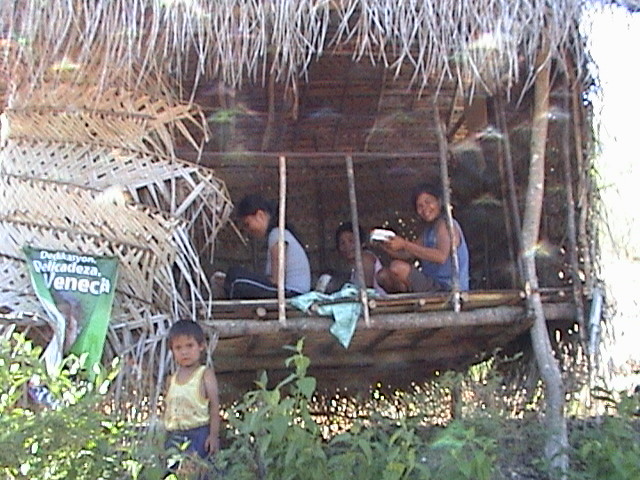
CEBU CITY, Philippines (BP)–The remote, picturesque villages of the Cebu and Camotes islands in the Philippines are among the poorest in the country.
The ruggedly beautiful mountains offer little to families who don’t know how to cultivate the rocky soil, a Southern Baptist humanitarian worker in the region said.
“Food and clean water are scarce. Many children die from preventable disorders like measles, diarrhea, pneumonia and malaria,” said Ben Wolf, who with his wife Pam directs work in the Asia Rim for Baptist Global Response, an international relief and development organization. “Opportunities for training are few, and many people abandon their farms and hometowns for the cities where their lack of job skills dooms them to life in the slums.”
For almost two years now, community development initiatives in three areas of the Cebu and Camotes islands have been working to provide the skills in farming, health care and livelihood that help people discover the quality of life God created them to enjoy, project director Al Hoopes said.
“Many adults abuse alcohol. Many of the children do not attend school due to poverty and lack of hope for the future to improve,” Hoopes said. “Remote areas have no health facilities and the Cebuanos have little knowledge about nutrition or health care. With little or no successful role models, rural youth abandon their families and go to cities like Cebu and Manila with no money and no values.”
Using the BOOST training approach developed by the Mindanao Baptist Rural Life Center, community development projects use Southern Baptist World Hunger Fund resources to provide hands-on, on-site training to alleviate many of the problems facing rural families, Hoopes said. BOOST (Baptist Out-Of-School Training) is a three-month, community-based program that develops skills in farming, Christian living, primary health care, home nutrition and community living.
“These projects will focus on making farmers successful. It will teach values, literacy if needed, community project development, and how to work without ‘outside’ funds,” Hoopes said. “They also will cover leadership development, several aspects of agriculture, water issues, and sanitation and hygiene to improve the lives of the rural people and assure strong families that they can feed their children and educate them.”
Local officials of the Philippines’ agriculture department helped workers locate the neediest areas for the development projects, Wolf said. Municipal leaders and heads of the local farmer’s groups have given their approval to the initiatives.
The projects employ sound principles of community development to help families understand how to use what they have to improve their lives, without becoming dependent on outside resources, Wolf added.
“Farmers provide land for food production and animal projects. They will use much of their own capital for the projects such as baskets for FAITH gardens, materials for goat barns, and materials for mushroom culture,” Hoopes said. “They also provide the labor to implement the projects.
FAITH is an acronym for “Food Always In The Home,” an approach to gardening designed to improve the quality of household nutrition.
“Our involvement is primarily limited to education and organization of the villages, as well as starter inputs such as seeds and small animals to begin small livelihood projects,” Hoopes added. “This small investment is paid back and put back into the local community for continued development.”
The projects make a big difference in people’s lives for a minimal cost, Wolf said. The 2011 components of the three projects will use a little more than $72,000 from the World Hunger Fund, benefiting about 1,200 people at costs of between $49 and $78 per person.
“Southern Baptists can be proud of the impact their contributions to the World Hunger Fund make for the world’s poorest families,” Wolf said. “The families in these communities have had little previous exposure to unconditional love and these projects help them understand that God created them to enjoy meaningful and abundant lives. They experience God’s love for themselves and learn how to help others find that same kind of life for themselves.
“If it wasn’t for the fact that Southern Baptists care about people in need and give generously to the World Hunger Fund, we couldn’t begin to make this kind of difference in the lives of people who have little hope of ever escaping the poverty and despair that rules their lives.”
–30–
Mark Kelly is senior writer and assistant editor for Baptist Press. Baptist Global Response is located on the Internet at www.gobgr.org.

















